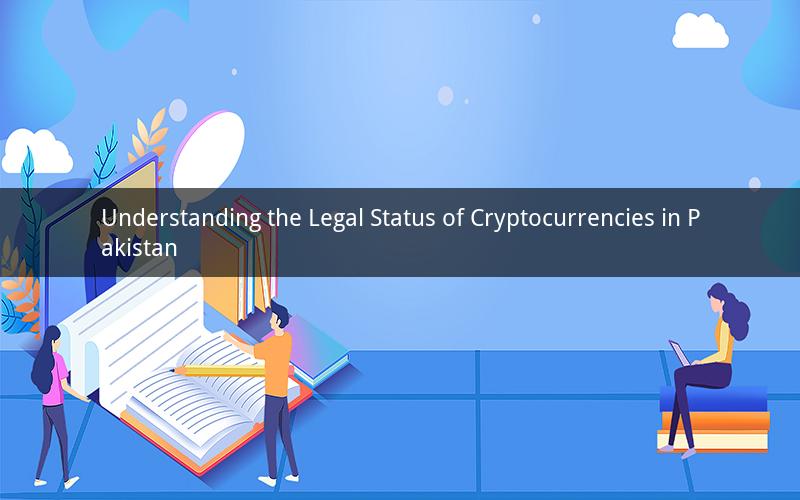
Cryptocurrencies have gained significant attention worldwide, and Pakistan is no exception. The question of whether cryptocurrencies are legal in Pakistan has been a topic of debate among enthusiasts, investors, and legal experts. In this article, we will explore the legal landscape surrounding cryptocurrencies in Pakistan, their acceptance, and the challenges faced by individuals and businesses in the country.
1. Are cryptocurrencies legal in Pakistan?
The legal status of cryptocurrencies in Pakistan is somewhat ambiguous. The State Bank of Pakistan (SBP), the country's central bank, has issued warnings against the use of cryptocurrencies, but has not explicitly declared them illegal. The ambiguity arises from the lack of clear legislation that explicitly regulates cryptocurrencies.
2. The SBP's stance on cryptocurrencies
The SBP has been cautious in its approach towards cryptocurrencies. In 2018, the central bank issued a notice, warning the public against using cryptocurrencies for transactions and investment purposes. The SBP emphasized that cryptocurrencies are not legal tender in Pakistan and that using them could lead to financial loss and legal repercussions.
3. Cryptocurrency exchanges and ATMs in Pakistan
Despite the SBP's warnings, cryptocurrency exchanges and ATMs have emerged in Pakistan. Local and international platforms have set up operations, catering to the growing interest in cryptocurrencies. However, these platforms operate in a regulatory gray area, with the SBP keeping a close watch on their activities.
4. Challenges faced by cryptocurrency users in Pakistan
Cryptocurrency users in Pakistan face several challenges, including:
- Lack of regulatory clarity: The absence of clear regulations makes it difficult for individuals and businesses to understand the legal implications of using cryptocurrencies.
- High transaction fees: Cryptocurrency transactions often come with high fees, making them less attractive for everyday use.
- Security concerns: The decentralized nature of cryptocurrencies makes them vulnerable to hacking and other cyber threats.
- Limited acceptance: Despite the growing interest in cryptocurrencies, their acceptance remains limited in Pakistan, with many businesses and individuals reluctant to adopt them.
5. The future of cryptocurrencies in Pakistan
The future of cryptocurrencies in Pakistan remains uncertain. While the SBP has expressed concerns about their use, the growing interest in digital assets suggests that cryptocurrencies may eventually find a place in the country's financial landscape. Here are some potential scenarios:
- The SBP may introduce regulations to govern the use of cryptocurrencies, providing clarity to individuals and businesses.
- The government may decide to ban cryptocurrencies, similar to what other countries have done.
- Cryptocurrencies may continue to operate in a regulatory gray area, with limited acceptance and use.
5 questions and answers related to cryptocurrencies in Pakistan:
1. Question: Can I use cryptocurrencies to pay for goods and services in Pakistan?
Answer: While some businesses accept cryptocurrencies, their acceptance remains limited. It is advisable to verify the credibility of the business before making any transactions.
2. Question: Are there any cryptocurrency exchanges in Pakistan?
Answer: Yes, there are several cryptocurrency exchanges operating in Pakistan, catering to the growing demand for digital assets.
3. Question: Can I invest in cryptocurrencies through a regulated platform in Pakistan?
Answer: Currently, there are no regulated platforms for investing in cryptocurrencies in Pakistan. It is advisable to exercise caution and conduct thorough research before investing.
4. Question: Will the SBP ban cryptocurrencies in Pakistan?
Answer: The SBP has not yet announced a ban on cryptocurrencies. However, the future remains uncertain, and the central bank may take stricter measures in the future.
5. Question: How can I protect myself from cryptocurrency scams in Pakistan?
Answer: To protect yourself from cryptocurrency scams, conduct thorough research on the platform or individual you are dealing with. Avoid sharing sensitive information and be cautious of high returns or guarantees.
In conclusion, the legal status of cryptocurrencies in Pakistan is a complex issue. While the SBP has expressed concerns, the country's regulatory landscape remains ambiguous. Cryptocurrency users and businesses must navigate the challenges and uncertainties surrounding digital assets, while keeping an eye on potential changes in the future.